Fighting Black Lives Matter Instead of Police Violence
Prosecutors in Los Angeles and environs are coming down harder on protesters than on the officers who abuse and even kill African-Americans. The plea deals being offered to activists are much harsher than those in some other areas of the U.S.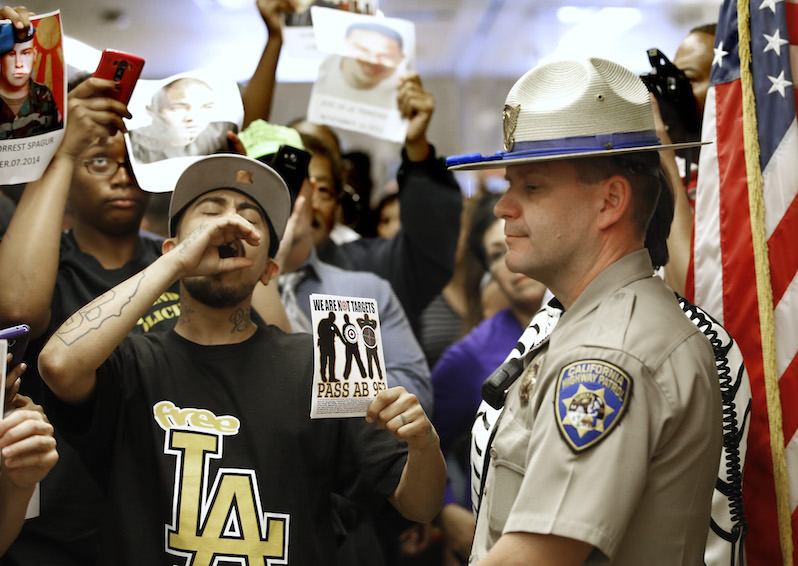 A California Highway Patrol officer is unfazed as protesters outside the Sacramento office of California Gov. Jerry Brown demanded passage of AB 953. The law, now in effect, is designed to restrict racial and identity profiling and, according to the ACLU, which supported the measure, to "increase transparency and accountability with law enforcement agencies." (Rich Pedroncelli / AP )
A California Highway Patrol officer is unfazed as protesters outside the Sacramento office of California Gov. Jerry Brown demanded passage of AB 953. The law, now in effect, is designed to restrict racial and identity profiling and, according to the ACLU, which supported the measure, to "increase transparency and accountability with law enforcement agencies." (Rich Pedroncelli / AP )
Since summer 2014, the Black Lives Matter organization has become known for its powerful and creative efforts to draw attention to how police brutality targets African-Americans. But some individual activists are paying a heavy personal price, being hit with multiple criminal charges for their activism in cities across the country. Members of Los Angeles-area chapters of the movement in particular are bearing a heavy burden of organizing while financially struggling to pay bail, fines and lawyer fees, and dealing with the mental and physical stress of choosing between plea deals that require prison time or court trials that risk the possibility of an even higher price.
Early this month, the first of six trials set for this year culminated in convictions for two BLM activists, Evan Bunch and Luz Flores, on misdemeanor charges filed after they tried to talk to Los Angeles Mayor Eric Garcetti at what authorities said was a private meeting last June. The two await a sentencing hearing in April. The convictions are fairly unusual. Activists in Minneapolis, Boston and Oakland, Calif., for example, have been able to take favorable plea deals and had their most serious charges (or in many cases all charges) dropped, or have been offered “restorative justice” processes.
The L.A. convictions bode ill for the second trial, which is underway. Seven members of BLM face misdemeanor charges for their involvement in the barricading of the 101 Freeway in Los Angeles in November 2014. That action was in response to the non-indictment of former Ferguson, Mo., police Officer Darren Wilson in the killing of Michael Brown three months earlier. Activists across the United States were enraged and protested in a fashion similar to the L.A. protest. Now, a year and a half later, the seven BLM-L.A. members have been offered an onerous plea deal of 30 to 40 days in prison, several years’ probation, community service and a two-year prohibition on participating in “unlawful protests, rallies, or marches.” They rejected the deal and are now on trial. In comparison, activists in Boston carried out a similar action in shutting down the I-93 Freeway and were offered six months of probation and no prison time — a much fairer sentence for an act of political protest.
Acts of civil disobedience are traditionally given special treatment in our courts, particularly considering the long and rich American history of political organizing. But, as those who risk arrest know, overzealous district and city attorneys are often eager to quash dissent by making an example of those who dare to disrupt business as usual. In Los Angeles, that is exactly what seems to be happening. The very system that BLM is calling out for prejudicial targeting of African-Americans is being wielded as a tool to counter the predominantly black organization.
Among the seven BLM members now on trial in L.A. is Rosa Clemente, a high-profile national organizer with BLM and the 2008 Green Party vice presidential candidate. She was a visiting scholar at California State University, Los Angeles, in 2014 when she participated in the freeway action. In an interview on “Uprising,” she said, “I want people to think about the amount of money that’s going to be spent on these trials, from the state, from people’s tax dollars, and then the financial burden that it puts on activists and organizers like us who do so much work.”
The trials keep BLM activists from devoting all their time to cases like the incident last month in Inglewood, a city in southwest L.A. County, in which police fatally shot an African-American couple in their car. Inglewood Mayor James Butts revealed the shocking fact that when police — responding to a call — first arrived on the scene, Kisha Michael, 31, and Marquintan Sandlin, 32, were unconscious. NBC Los Angeles, quoting Butts, said, “For at least 45 minutes, police attempted ‘to rouse’ them in an effort ‘to de-escalate the situation.’ ” Both victims were single parents. Their names are part of a long list of blacks killed at the hands of American police officers.
It is ironic that authorities in L.A. County, with one of the highest number of police killings in the country, appear to be more intent on prosecuting activists than on calling trigger-happy cops to justice. According to Clemente, “All other BLM chapter organizers and activists throughout the country, their charges have either been dropped or their plea [agreement] was acceptable enough. … [I]t is only in Los Angeles where all of us are being put on trial.” Perhaps it is no coincidence that high numbers of police killings go hand in hand with overzealous prosecution of the very people calling attention to the violence. Clemente speculated that “this is meant to stop us, it’s meant to have a chilling effect to others that stand with BLM.”
The trials of BLM activists are happening during a historic election year when, as Clemente put it, “we have a potential presidential candidate that is xenophobic, racist and misogynist, and we’re at a time where white nationalism is growing, and white nationalism is always supported by the state and the courts.” Her point was most recently proved at a Ku Klux Klan rally in Orange County, Calif., where the first people to be absolved of wrongdoing after multiple stabbings were the KKK members themselves — the ones who did the stabbing. Police contended that the stabbings were acts of self-defense. It is difficult to imagine police releasing people of color without any charges after they stabbed someone, even in self-defense.Cities like L.A. are proceeding with the charges against BLM members partly because there is very little media coverage and hence almost no public awareness. So far, the only local print media outlet in the city that has covered the trials is the Los Angeles Daily News.
Clemente sees the city’s decision to proceed to a trial over two misdemeanors as “political persecution” and an attempt by the city to “send a message to the broader Black Lives Matter movement in the country that any time we go out there and protest in what is an American tradition of civil disobedience, the state is going to do anything and everything to stop that.”
It’s not just the city of Los Angeles. In the nearby city of Pasadena, a young organizer, Jasmine Richards, founder of the Pasadena chapter of BLM, faces multiple charges including a serious felony charge of “making terrorist threats.” The charges stem from her participation in shutting down a main Pasadena thoroughfare to draw attention to the 2012 police killing of black teenager Kendrec McDade. Richards has been offered a horrendous plea deal of 180 days in county jail, three years’ probation and an order to stay away from the local park where she holds meetings with members. She has decided to reject the deal and go to trial on a major count. Hers may be the most serious charges against any BLM activist in the country.
We have been here before. In the 1960s, aggressive state persecution of African-American activist groups such as the Black Panther Party cut short their ability to grow and organize. The goal of full emancipation remained incomplete, and it is that unresolved crisis that BLM is attempting to take on.
Los Angeles should not stand on the wrong side of history.
Editor’s note: On Friday, two members of the Los Angeles Police Commission called for revising LAPD policy in an effort to reduce police shootings.
Your support matters…Independent journalism is under threat and overshadowed by heavily funded mainstream media.
You can help level the playing field. Become a member.
Your tax-deductible contribution keeps us digging beneath the headlines to give you thought-provoking, investigative reporting and analysis that unearths what's really happening- without compromise.
Give today to support our courageous, independent journalists.
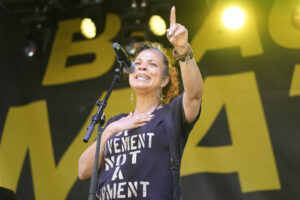
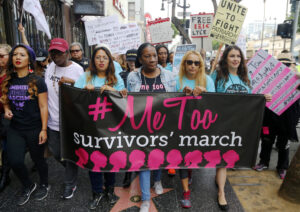
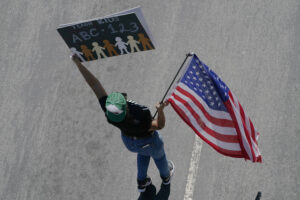
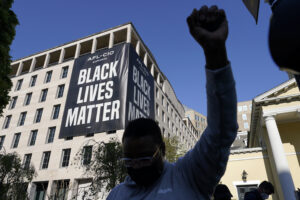
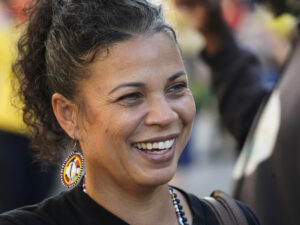
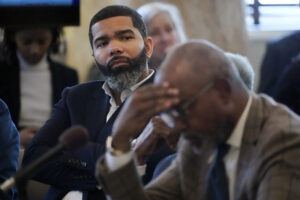
You need to be a supporter to comment.
There are currently no responses to this article.
Be the first to respond.